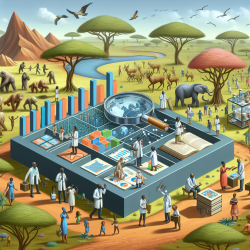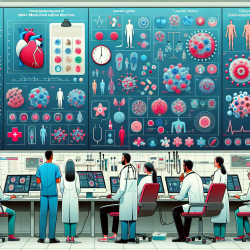Introduction
In the realm of global health, the interconnectedness of politics and health outcomes is undeniable. The systematic review titled "Politics of disease control in Africa and the critical role of global health diplomacy" sheds light on the multifaceted challenges faced by African nations in combating diseases. This blog aims to translate the findings of this review into actionable insights for practitioners, particularly those involved in online therapy services like TinyEYE, to improve their skills and enhance health outcomes for children.
Understanding the Politics of Disease Control
The review highlights the complex political landscape surrounding disease control in Africa. With a focus on communicable diseases, non-communicable diseases (NCDs), and nutritional disorders, the review underscores the need for cooperative partnerships among various stakeholders. Practitioners can benefit from understanding these dynamics to advocate for better health policies and interventions.
The Role of Global Health Diplomacy (GHD)
Global Health Diplomacy (GHD) plays a pivotal role in addressing health challenges in Africa. By fostering collaboration among governments, international organizations, and non-state actors, GHD can enhance disease response strategies. Practitioners should consider how GHD principles can be applied in their work, particularly in advocating for resources and policies that prioritize health in development agendas.
Implementing Data-Driven Strategies
Data-driven decision-making is crucial for effective disease control. The review emphasizes the importance of robust health systems and preparedness strategies. Practitioners can leverage data to identify trends, assess intervention effectiveness, and advocate for evidence-based policies. By integrating data into their practice, they can contribute to more informed and impactful health outcomes.
Encouraging Further Research
The review calls for continuous engagement and research to address Africa's health challenges. Practitioners are encouraged to participate in or initiate research projects that explore the intersection of politics, health, and diplomacy. By contributing to the body of knowledge, they can help shape policies that better address the needs of children and communities.
Conclusion
The insights from the systematic review provide a foundation for practitioners to enhance their skills and advocate for better health outcomes. By understanding the political dynamics, leveraging GHD, and implementing data-driven strategies, practitioners can play a crucial role in improving health systems and outcomes in Africa.
To read the original research paper, please follow this link: Politics of disease control in Africa and the critical role of global health diplomacy: A systematic review.










